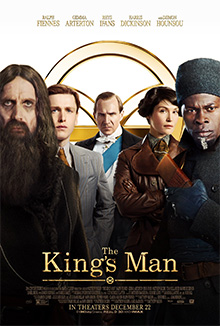 Limite
Limite, 1931
A man (Raul Schnoor) and two women (Olga Breno and Tatiana Rey) are adrift in a lifeboat, and a clear sense of despair has settled over them. In flashbacks we learn about their lives before the lifeboat, each its own brand of sorrow.
I know that films are an inherently visual medium, but I've realized over the last few years that most of what I absorb from a film is not visual, but rather verbal. I glean most of my meaning from listening and reading the subtitles. This makes silent films particularly challenging for me, and experimental silent films are basically my Everest. Which is to say that it took me seven or eight attempts to watch
Limite, because I would realize I was not looking at the screen but just listening to the music. And when I'd return my eyes to the screen I would find the camera lingering on an image with no sense of why. Stop. Rewind.
But once I got myself into the flow of the film, I was incredibly enchanted and moved by what it had to offer.
The style of the film is very evocative of a Soviet montage style, but with more of an emphasis on emotional symbolism. It's the kind of film that is hard to review, because the degree to which it's just operating on emotional frequency makes it inadequate to use words to explain its impact. It seems silly to type that a shot of a woman's arms gently swaying in the water that then transitioned to an askew shot of a field of grass blowing in the wind affected me emotionally, but it did. The images in this film are powerful because they don't demand a literal symbolic meaning. Yes, some of the images have obvious interpretations (like a fish gasping for air or a solitary tree that then transforms into an image of a woman), but many of the images seem there to be felt with no sense or worry that you're reading them incorrectly.
In addition to the images themselves, the movement of the camera is also worth noting. It seems to transition between something like a human point of view---moving along at ground level with the characters--to something more omniscient---swooping over trees and in and around the characters. In one great shot, the camera is mounted to the wheel of a train as it begins to accelerate, the camera rising and falling as the wheel circles.
Despite what sounds like a very abstract basis, the film actually has a pretty strong central narrative for each character: one of the women has escaped from prison, likely with the help of a guard. One of the women has left her husband. The man cheated on his wife with tragic outcomes. The film is almost entirely without dialogue/titles. At first I thought that this was because of the difficulty in restoring it, but I read in another review that this was intentional. There are only two sequences where we see translations/dialogue, and both are in service of explaining parts of the character backgrounds that might not be grasped by the imagery alone.
The emotions explore here, if they hit you the right way, are intense. This is a film about hope (or the lack/loss thereof) and confinement and escape that might not really be escape. As one character stares over the edge of the lifeboat, it's unclear whether she's looking for rescue or thinking about jumping. It often seems to post a question about what our limits are, and suggests just how horrible it might be to actually find out the answer to that question.
For me, this movie really worked. I am really aware that films in this style can read as silly or pretentious to some people. You'll know in the first 10 minutes if this film is for you. I found it incredibly rewarding and moving.

 6/10
6/10

 6/10
6/10











